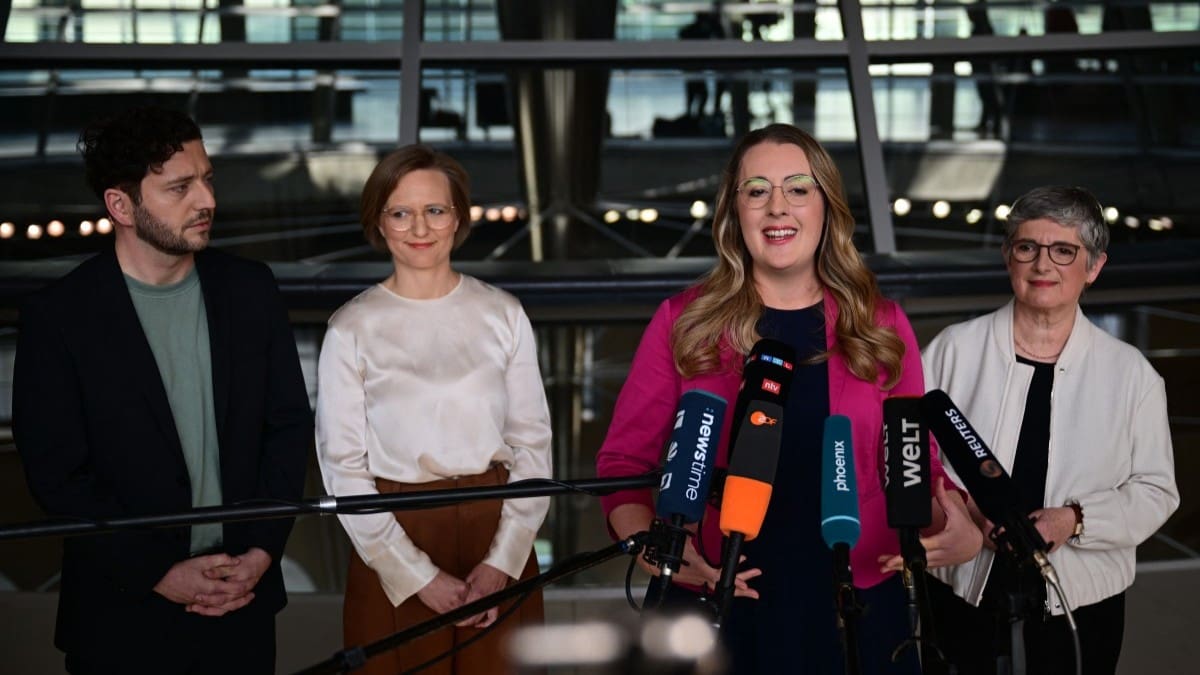
Germany The Greens party co-chairs Franziska Brantner (2ndL) and Felix Banaszak (L) with parliamentary group co-leaders Katharina Droege (2ndR) and Britta Hasselmann (R) give a press statement in Berlin on March 10, 2025.
Photo: Tobias Schwarz / AFP
The German centre-right CDU/CSU alliance is likely to accommodate even more leftist demands in order to push through a bill in parliament that would allow a massive increase in state borrowing to boost defence and infrastructure.
The Greens party wants the new government—which will be composed of the CDU/CSU and the Social Democrats (SPD)—to commit to more funding for climate protection and pro-green NGOs, as well as more money for foreign aid.
Only if these demands are met will they consider backing the incoming governing parties next Tuesday, March 18th when their proposals go to a vote in the German parliament.
As we previously reported, Germany’s likely next chancellor, Friedrich Merz—the leader of the CDU—broke his election promises and gave in to the demands of the SPD by announcing his intention to raise almost a trillion euros worth of debt to revamp the military and revive growth.
Merz wants to push through the constitutional changes to ease strict borrowing limits before the newly elected parliament convenes on March 25th, as he only has the necessary two-thirds majority in the outgoing Bundestag.
However, in order to do that he needs the backing of the Greens, whose leaders initially vowed on Monday, March 10th that they would block Merz’s reforms. Katharina Dröge, the leader of the party’s parliamentary group said the Greens would urge its lawmakers not to vote for the proposals, unless they include genuine support for climate policies.
The announcement was followed by talks late on Monday between the Greens and the parties vying for government. After the meeting, CDU leadership said they were certain that an agreement could be reached.
This means that the centre-right will give in to even more left-wing demands, as it has done on the issue of migration as well.
The right-wing Alternative für Deutschland (AfD) and the far-left Die Linke, who together have more than a third of the seats in the new parliament and are able to block Merz’s proposals, launched separate legal challenges against convening the outgoing parliament to block lawmakers from debating Merz’s plans.
If the constitutional court does not rule otherwise, the old parliament will convene on Thursday, March 13th to hold an initial debate on the amendments proposed by the incoming government.
